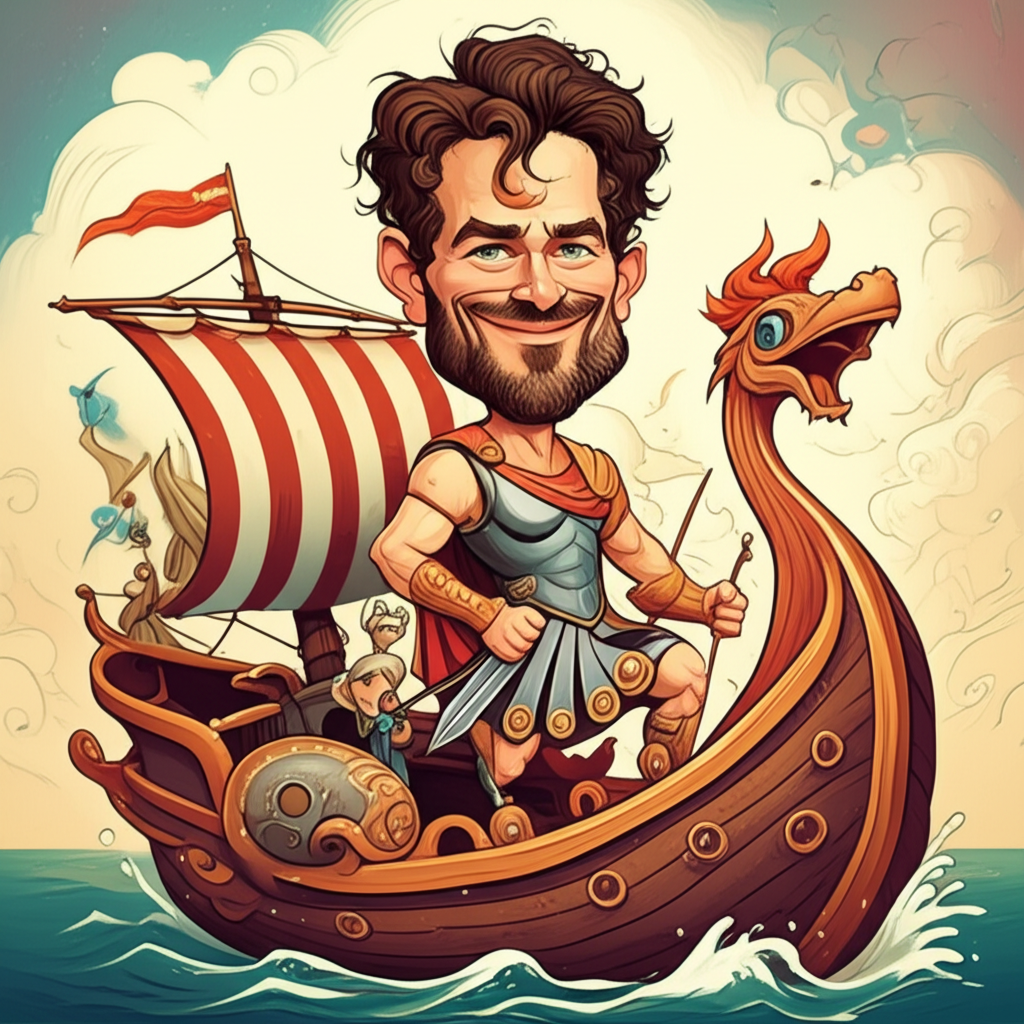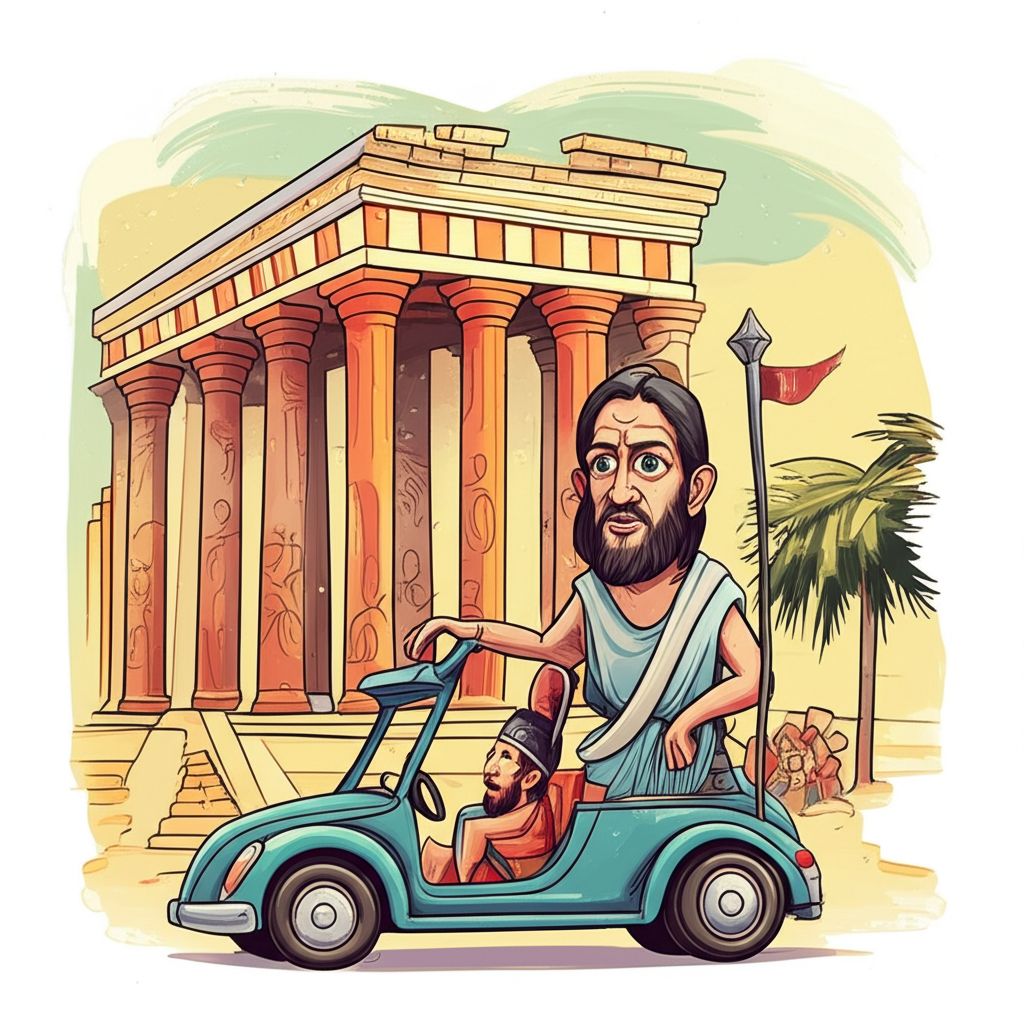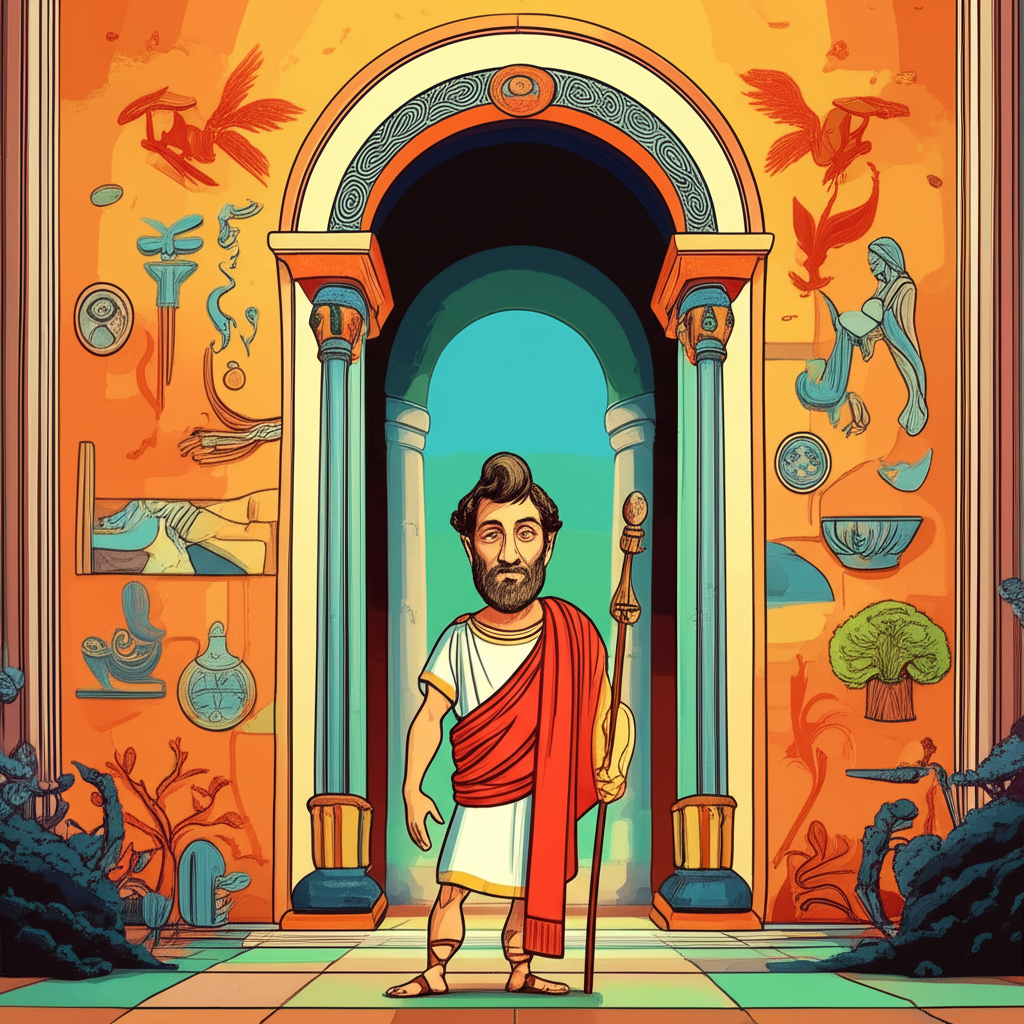
In the sun-drenched landscapes of ancient Greece, amidst the echoes of bronze and the whispers of olive groves, arose tales that shaped the very fabric of their understanding of life, death, and the heroic spirit. These were not factual accounts, but rather vibrant narratives woven from the threads of imagination, fear, and profound human experience. Among the most enduring of these stories is that of Achilles, the swift-footed warrior, and his supposed journey to Elysium, the fabled land of the blessed. This is not a testament to divine power or a call to worship, but an exploration of a cultural narrative, a window into the minds of ancient people who sought meaning in the face of mortality.
The cultural milieu from which these myths sprang was that of the Heroic Age of Greece, a period roughly analogous to the Bronze Age, though its stories were solidified and transmitted much later, primarily through oral tradition and later written epics like Homer’s Iliad. The environment was one of stark beauty – rugged mountains, sparkling seas, and fertile valleys dotted with small, independent city-states. Life was often precarious, marked by warfare, natural disasters, and the ever-present shadow of death. In such a world, the concept of the divine was deeply intertwined with the natural world and human endeavors. The gods were seen as powerful, capricious beings who influenced human affairs, but their actions were often framed through a lens of human ambition, pride, and fate. The afterlife, too, was a subject of much speculation. The prevailing view was not of a heavenly reward, but often a dim, shadowy existence in the Underworld, a place of shades and forgetfulness. Elysium, however, offered a contrasting vision – a place of peace and eternal bliss, reserved for a select few.
Achilles himself is a figure of immense mythological significance. He is the archetypal warrior, the embodiment of aretē – excellence and virtue, particularly in the context of combat and martial prowess. His divine parentage, the son of the mortal king Peleus and the sea nymph Thetis, imbued him with a dual nature, a mortal bound to death yet touched by immortality. Symbolically, Achilles represented the pinnacle of human achievement in the warrior tradition. His speed, his strength, and his unyielding courage were admired, but his legend also explored the destructive nature of pride, rage, and the tragic consequences of divine favor. His vulnerability, famously his heel, served as a potent symbol of the inescapable nature of mortality, even for the seemingly invincible.
The narrative of Achilles’ journey to Elysium is not found as a singular, explicit account in the primary epics. Instead, it is a concept that emerges from the understanding of his destiny and his eventual fate. The Iliad famously chronicles his wrath and his heroic deeds during the Trojan War, culminating in his eventual death. The Odyssey and later texts, however, offer glimpses into the post-mortem existence of heroes. According to some traditions, after his death on the battlefield, Achilles was not consigned to the bleak halls of Hades. Instead, his divine lineage and his extraordinary valor earned him a place of honor. He was said to have been transported, by the will of his divine mother and the gods, to the westernmost reaches of the world, to the land of Elysium.
Imagine this: the dust of Troy had settled, the clang of bronze had faded, and Achilles, the terror of the Achaeans, lay still. But death, for him, was not the end of all existence. His mother, Thetis, her heart heavy with grief but also with pride for her son’s unparalleled glory, appealed to the Olympian gods. They, acknowledging the immense sacrifices and the unblemished valor of Achilles, decreed a special fate. He was not to languish in the gloom of the Underworld. Instead, a celestial chariot, drawn by steeds of pure light, descended. Achilles’ spirit, no longer burdened by mortal flesh, was lifted.
His journey was not across the familiar seas of the Aegean, but towards the setting sun, beyond the Pillars of Hercules, to a place whispered about in hushed tones by sailors and seers. This was the land of Elysium, a paradise veiled in perpetual twilight, where the air was always mild, and the flowers bloomed eternally. Here, the hardships of mortal life were unknown. There was no sorrow, no pain, no struggle. The Elysian Fields were described as a verdant expanse, with meadows rich with flowers and trees laden with fruit. The souls of the blessed, including Achilles, walked these fields, engaged in joyful pursuits. Perhaps Achilles, still the warrior at heart, found himself in games of skill and strength, his prowess now a source of pleasure rather than a tool of war. Or perhaps, finally free from the agonizing weight of fate and wrath, he found a profound and quiet peace. He was said to have been reunited with other heroes of old, men like Menelaus and his wife Helen, whose own fates were intertwined with the Trojan saga. They lived in eternal joy, their memories of earthly struggles softened into distant, almost dreamlike recollections.
The symbolism inherent in the myth of Achilles in Elysium is multifaceted. For the ancient Greeks, Elysium represented the ultimate reward for exceptional merit, a testament to the belief that extraordinary lives, even those cut short, could achieve a form of immortality through divine favor and enduring glory. It was a concept that offered a glimmer of hope against the pervasive fear of oblivion after death. Achilles’ presence there reinforced the idea that the gods, while seemingly distant, did acknowledge and reward human virtue, particularly the virtues of courage, leadership, and sacrifice on the battlefield. The journey itself, towards the western edge of the known world, symbolized a transition to a realm beyond the ordinary, a sacred space where the rules of mortality did not apply. It spoke to the human yearning for a place of ultimate peace and contentment, a stark contrast to the often brutal realities of their world.
In the modern world, the myth of Achilles and his potential sojourn in Elysium continues to resonate. It finds expression in literature, where authors explore the nuances of his character and the philosophical implications of his fate. In popular culture, from epic films to video games, Achilles remains a powerful archetype of the flawed hero, his story a rich source of narrative inspiration. Academically, these myths are studied within the fields of classical studies, mythology, and cultural history, offering insights into the religious beliefs, societal values, and psychological landscapes of ancient civilizations.
It is crucial to reiterate that these narratives, including the legend of Achilles’ voyage to Elysium, are products of ancient human imagination and storytelling traditions. They are valuable for understanding the cultural heritage and intellectual endeavors of past societies. As Muslims, we recognize that only Allah (God) is the true Creator and Sustainer of all existence. Our understanding of the afterlife is based on divine revelation, not on mythological accounts. Nevertheless, we can appreciate these ancient stories for their narrative power, their exploration of universal human themes like courage, mortality, and the search for meaning, and their contribution to the rich tapestry of human cultural heritage. The enduring power of tales like that of Achilles and Elysium lies not in their literal truth, but in their ability to spark our imagination, to provoke thought, and to connect us to the timeless human impulse to understand our place in the cosmos.




